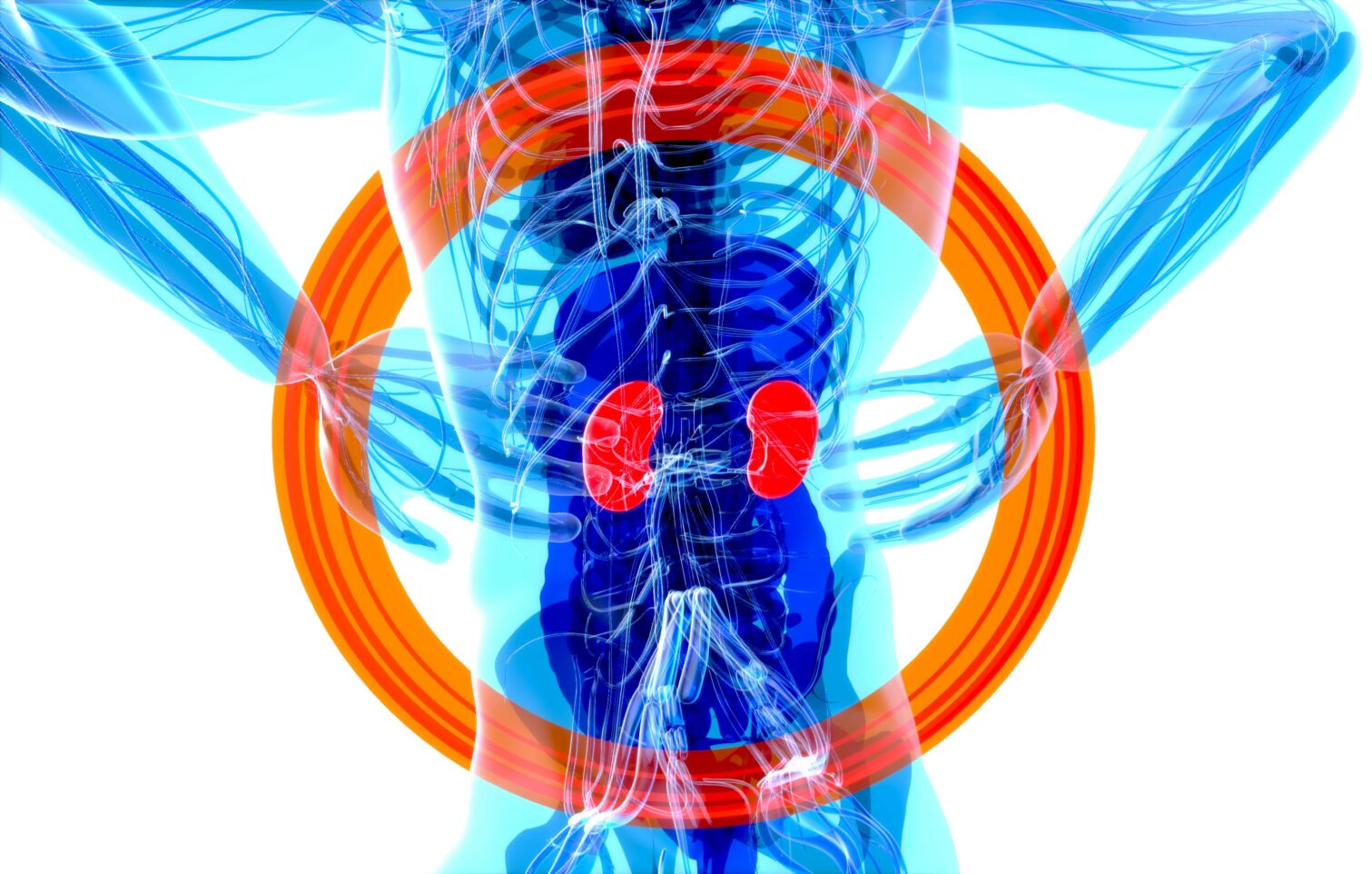No matter what kind of medicine you take, whether OTC (over-the-counter) or prescription, it is destined to take a trip through your kidneys. Taking a drug the wrong way or in excessive amounts can damage these vital, bean-shaped organs and lead to serious complications. In the worst-case scenario, it could necessitate a kidney transplant.
“Compared with 30 years ago, patients today are older, have a higher incidence of diabetes and cardiovascular disease, take multiple medications, and are exposed to more diagnostic and therapeutic procedures with the potential to harm kidney function,” Cynthia A. Naughton, PharmD, an associate professor of pharmacy at North Dakota State University, wrote in a 2008 article.1 All of these factors are associated with an elevated risk of kidney damage.
Studies have shown an estimated 14-37.5% of adult cases of acute kidney failure were associated with medications.1 The technical term for this scenario is nephrotoxicity, and this complication is growing more common as the population ages, along with the rates of various diseases.2
The kidneys get rid of waste and extra fluid in the body by filtering the blood to produce urine.3 They also keep electrolyte levels balanced and make hormones that influence blood pressure, bone strength and the production of red blood cells. When something interferes with the kidneys, they can’t do their job, so these functions can slow down or stop altogether.
The Dangers of This Damage
Drug-induced kidney problems are often reversible, as long as the offending medication is quickly identified and discontinued. However, you may need to be hospitalized for treatment, depending on the severity of your kidney injury.4,5
Non-Steroidal Anti-Inflammatory Drugs (NSAIDs)
Prescription NSAIDs like ketoprofen and OTC versions, such as Advil (ibuprofen) and Aleve (naproxen), narrow the blood vessels leading to the kidneys.6 Decreased blood flow can injure the kidneys.
Antibiotics
Various classes of antibiotics can also harm the kidneys in different ways. Aminoglycosides such as tobramycin can cause toxicity in renal tubular cells.7 These specific kidney cells play an important role in kidney filtration, which exposes them to high levels of drugs from the bloodstream, making them more sensitive to the toxic effects of those drugs.
Sulfonamides, a group of antimicrobial medications, can produce crystals that do not dissolve in urine, thus blocking the flow of urine. Another antibiotic, vancomycin, can cause kidney swelling and inflammation. For more about antibiotics, see 5 Things You Need to Know About Antibiotics.8
Antiviral Drugs
Antiviral medications such as acyclovir (used for herpes, chickenpox and shingles) may cause kidney swelling and inflammation and can also produce those pesky crystals that won’t dissolve.4
These medications can sometimes cause an immune reaction that leads to inflammation in several parts of the kidney.
Anti Rejection Post-Transplant Medications
Antirejection drugs, including cyclosporine and tacrolimus, can work like NSAIDs, constricting the blood vessels near the urinary organ, which reduces blood flow and negatively affects kidney function.2
HIV Medications
Viread (tenofovir) and Reyataz (atazanavir) and other protease inhibitors can also cause toxicity in the renal tubular cells, which is also a known side effect of other antimicrobials.10, 11
Diuretics
Water pills like hydrochlorothiazide and furosemide, used for high blood pressure and swelling, can cause dehydration, which may also lead to swelling and inflammation of the kidneys.4
Kidney Problems: Symptoms and Diagnosis
Though symptoms and signs of kidney toxicity can vary from person to person, they might include a decreased amount of urine, fatigue, nausea, confusion, shortness of breath and pressure or pain in the chest.12
It is particularly crucial to get professional guidance around managing your medications if you have existing medical conditions, including high blood pressure, diabetes and, of course, kidney disease. If so, it is also important to follow your doctor’s advice about keeping your symptoms under control.
If you are taking meds that might stress your kidney, your healthcare provider can get an idea of your level of kidney function by determining your estimated glomerular filtration rate (GFR).16 This is calculated using your blood creatinine level and is considered the best available test for this purpose because it takes individual factors like age, sex and race into account. It can also be used to adjust your medication dosage based on how well your kidneys are working.
Many medications make their way to your kidneys after you take them, so it’s important to pay attention to any signs that these organs are under stress and mention it to your healthcare provider. Together, you can decide how to manage your treatment to avoid serious, long-term damage wherever possible.
Originally published May 11, 2017, updated by Emma Yasinski on August 7, 2024






